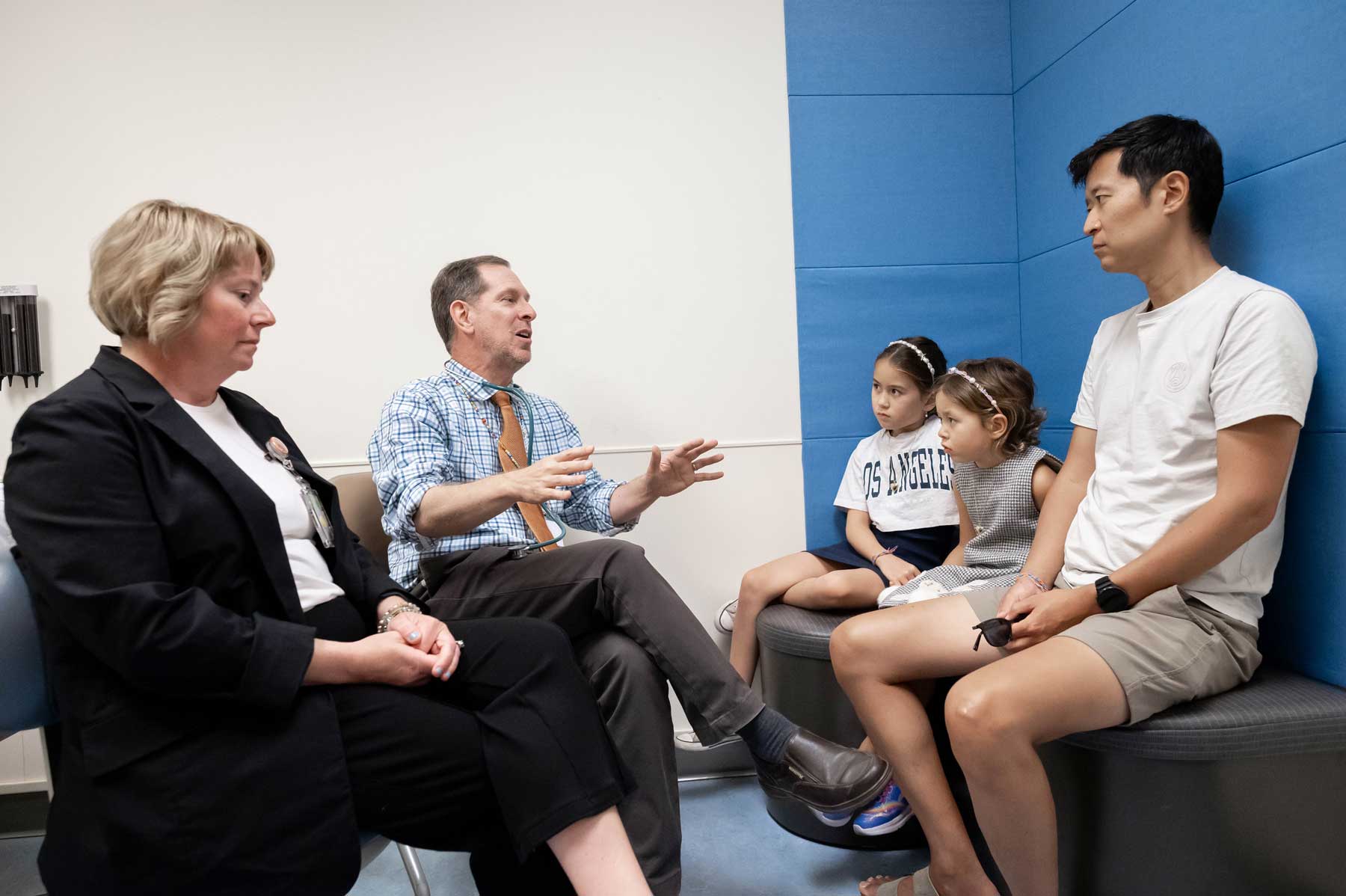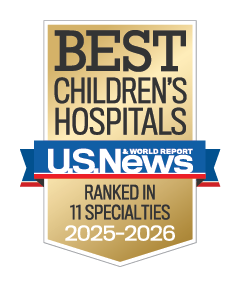

Inspired by sister’s leukemia treatment, oncology researcher helps transform care, resulting in a near 90% survival rate for stem cell transplants.
While reviewing patients’ charts early in the morning, pediatric hematologist-oncologist Christopher Dvorak, MD, used to feel his heart race when he read about a child with blood cancer getting a stem cell transplant.
A stem cell transplant — a procedure that replaces unhealthy stem cells with healthy ones — helps increase children’s chances of surviving blood cancers, like leukemia, and other blood-based illnesses.
Before a transplant, patients receive chemotherapy and radiation to ‘condition’ their body to accept the new, healthy stem cells. The conditioning eliminates the body’s current stem cells, weakens the immune system, and destroys any remaining cancerous cells. Even so, Chris knew the long-term prognoses for these kids were grim. Historically, only two-thirds of blood cancer patients who received a stem cell transplant survived three years without relapse.
These days, however, Dvorak and fellow transplant specialists at UCSF Benioff Children’s Hospital’s Blood & Marrow Transplant Clinic are breathing easier. Recent research showed that over 86% of children survived three years without relapse thanks to a new conditioning treatment Dvorak’s team developed.
The findings, reported in Blood Advances and supported by the National Institutes of Health (NIH) through the National Cancer Institute (NCI), mean more children are surviving with little reminder of ever having had childhood cancer.
The original chemotherapy conditioning guidelines — still used today in children — were developed over 50 years ago for adults and based merely on height and weight. To achieve higher survival rates and reduce long-term side effects, Dvorak and his team developed a conditioning treatment that gives children the least amount of chemotherapy needed and skips radiation entirely.
“Optimal chemotherapy conditioning accounts for not only children’s height and weight but also many other personalized factors like immune cell count and kidney function that helps us calculate a precise amount of chemotherapy and eliminate the need for radiation,” said Dvorak, lead study author and chief of the UCSF Allergy, Immunology and Bone Marrow Transplantation Division in Pediatrics.
Up to now, there wasn’t a lot of science behind chemotherapy conditioning for stem cell transplant, according to Janel Long-Boyle, PharmD, PhD, UCSF professor of Clinical Pharmacy and co-author of the paper. “It is sad to say, but we were basically guessing at how best to treat kids, while giving them far too much chemo and radiation,” said Long-Boyle.
Haunted by her own sister’s leukemia treatment, Long-Boyle developed an algorithm to compute a precise chemotherapy conditioning dose — based on kids’ genetics, sex, race, immune cell count, kidney function, and other factors, in addition to height and weight. The precision chemo and lack of radiation help save children from long-term side effects, like infertility and other cancers.
Long-Boyle’s algorithm is the first in the world to demonstrate the benefits of the new conditioning approach. “This is a direct example of how research funding goes from bench to bedside, developing treatments in the lab that reach patients. Now the real challenge is shifting clinicians’ mentalities to be open to the new approach,” added Long-Boyle.
Ripple effect: How one hospital’s innovation advances care nationwide
To help kids across the country, Dvorak and Long-Boyle are expanding research partnerships with institutions like the University of Utah, Children’s Hospital Los Angeles, Children’s National Hospital, and Children’s Wisconsin.
“UCSF’s work created the foundation for clinicians and researchers throughout the country, like me, to deliver highly specialized care to treat children in our communities who have severe blood cancers,” said Soohee Cho, MD, MSCS, a former UCSF Fellow who is now a pediatric hematologist-oncologist at the University of Utah.
Indeed, physicians and families around the country rely on Long-Boyle and Dvorak for their clinical expertise, which they give free of charge to colleagues from Florida, New York, Oklahoma, Tennessee, and beyond.




